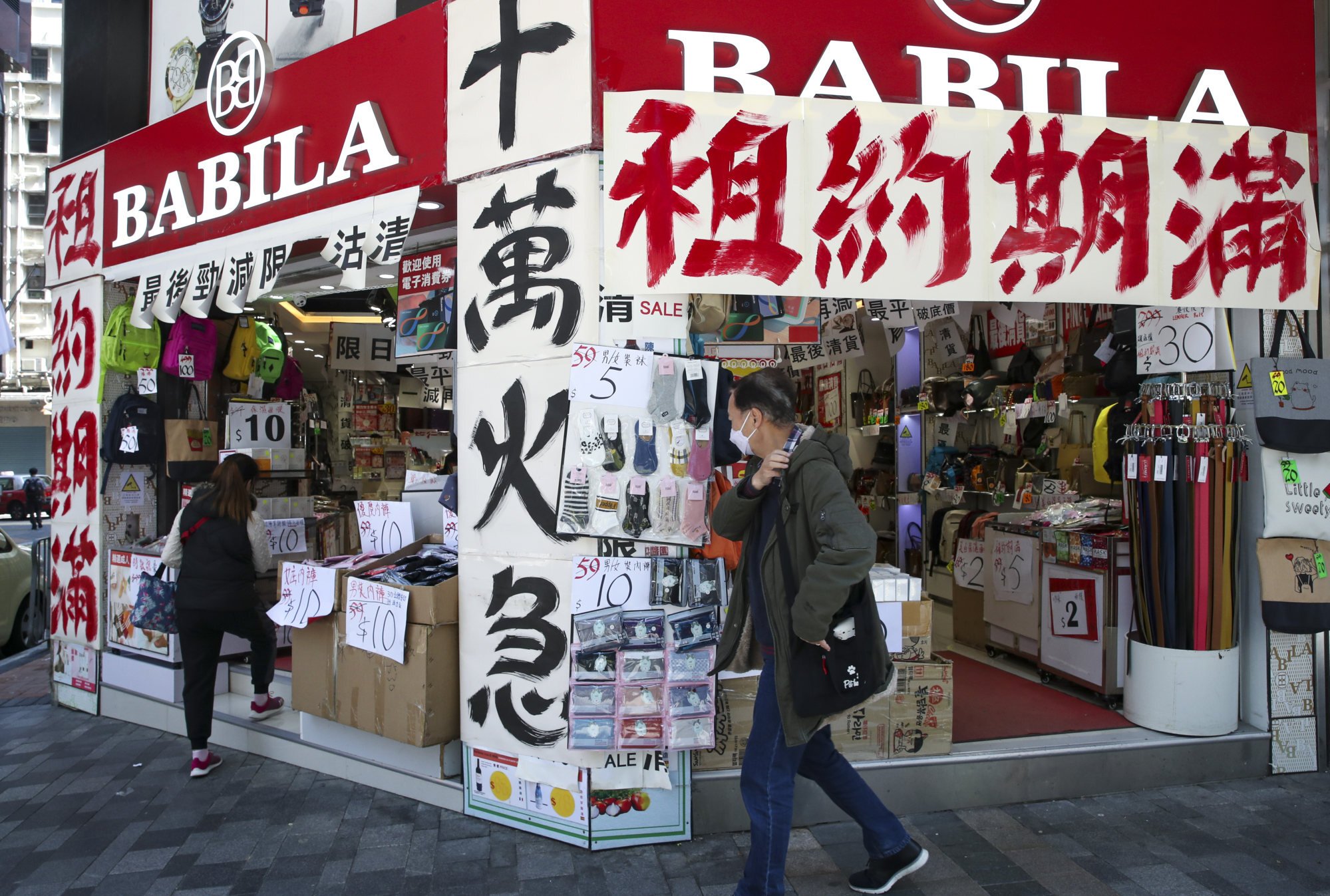
Cash-strapped small Hong Kong landlords to be offered interest-free loans as part of new government policy for delayed rent collection
- Financial Secretary Paul Chan says authorities will offer small commercial property owners three months’ worth of rent on their tenants’ behalf, of up to HK$100,000
- Government to work with banks to determine which landlords qualify for interest-free loans, dependent on status of income and assets, he adds
The Hong Kong government will offer interest-free loans to small commercial property owners affected by its latest anti-epidemic policy that could prevent them from collecting rent for up to six months, the city’s finance chief has said.
Financial Secretary Paul Chan Mo-po on Saturday said authorities would step in to pay struggling landlords three months’ worth of rent on their tenants’ behalf, subject to a ceiling of up to HK$100,000 (US$12,806), as they implemented the rent-collection delay policy aimed at helping small and medium-sized businesses affected by the recent coronavirus outbreak.
The new measure, announced on Wednesday when Chan unveiled the city’s annual budget, would require the Legislative Council to pass a law forbidding landlords for up to six months from terminating the leases of, halting services for, or taking legal action against “tenants of specified sectors” that failed to pay their rent on time.
Days after he unveiled the unprecedented move, Chan said the policy was intended to only target prominent commercial property owners and land developers.
“Small landlords are not the intended target of the policy,” the finance chief told a radio programme on Saturday.
“If they are struggling, we can offer interest-free loans to them through banks just like what we are doing with people who are unemployed,” he said.
11 banks, including HSBC, Standard Chartered to suspend services on Saturdays
While the relief period has been seen as a boost for pandemic-stricken businesses, the policy has left private landlords concerned about investment returns being put on hold at an equally critical time.
Chan explained that under the arrangement, the government would provide advanced rent payments of up to three months, with landlords to reimburse them once rents had been collected from tenants.
He said the government would work with banks to determine which landlord qualified for the loans, based on the status of each property owner’s income and assets. Chan did not mention a timeline for the scheme or how to apply for the advanced payments.
The financial secretary also shrugged off suggestions that the government was shouldering all the commercial risk supposedly placed on landlords, saying that they would ultimately have to pay the loans back.
Chan said that since the announcement of the deferment policy on Wednesday, a developer had already stepped up to waive rents for its retail tenants until mid-April.
Without naming the developer, Chan said that if other landlords had acted in the same way, there would be “no need” to legislate the rent deferment law.
The financial secretary defended the policy, arguing that it would offer tenants “room to breathe”, at a time when Hong Kong’s business environment was “in a coma”.
“But some landlords have stood firm on refusing to negotiate, with others even raising the rent,” he added.

The unnamed developer, Swire Properties, one of Hong Kong’s biggest retail landlords, said on Friday it would offer to waive rents for tenants forced to close at its wholly-owned shopping centres, Cityplaza and Pacific Place, from the onset of government-mandated closures until April 20.
Liberal Party lawmaker Frankie Yick Chi-ming said he welcomed the move and expected small commercial property owners to benefit from the scheme.
Having previously criticised the policy to defer rent payments, Yick said that without the loans, property owners would have to pay a harsh price for the wider community.
“This is not how countries overseas would do it,” he said.
Derek Chan Hoi-chiu, head of research at Ricacorp Properties, said the loan scheme would help mitigate the impact experienced by smaller landlords, but would not solve all their problems.
He said the amount provided by the loans would likely cover smaller properties, as the government intended, adding that larger sites owned by corporations could weather the impact better.
Hong Kong’s surprise surplus: were numbers ‘distorted’ to avoid deficit?
As part of the budget unveiled on Wednesday, financial secretary Chan also committed to a second round of digital consumption vouchers, doubling the amount offered in the first round last year from HK$5,000 to HK$10,000.
Chan said the vouchers would again be distributed electronically, as opposed to cash payments – advocated by some those who favoured spending the money on paying bills – because the government had accumulated the necessary experience from the previous round to ensure a speedy distribution.
The financial secretary said he would not impose additional requirements, such as the precondition to get vaccinated, as it was partly aimed at helping elderly residents, a group with the city’s lowest inoculation rate so far.

